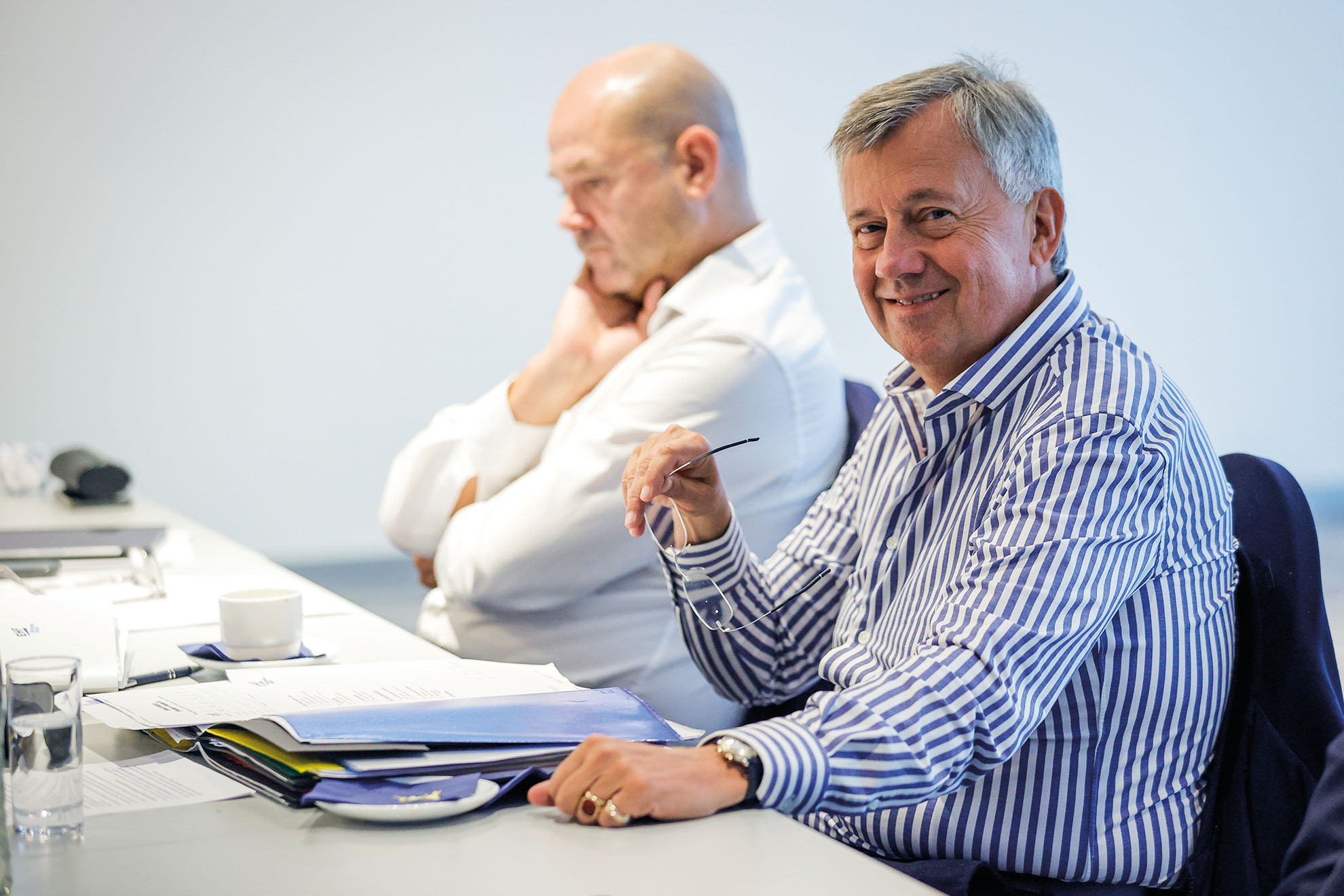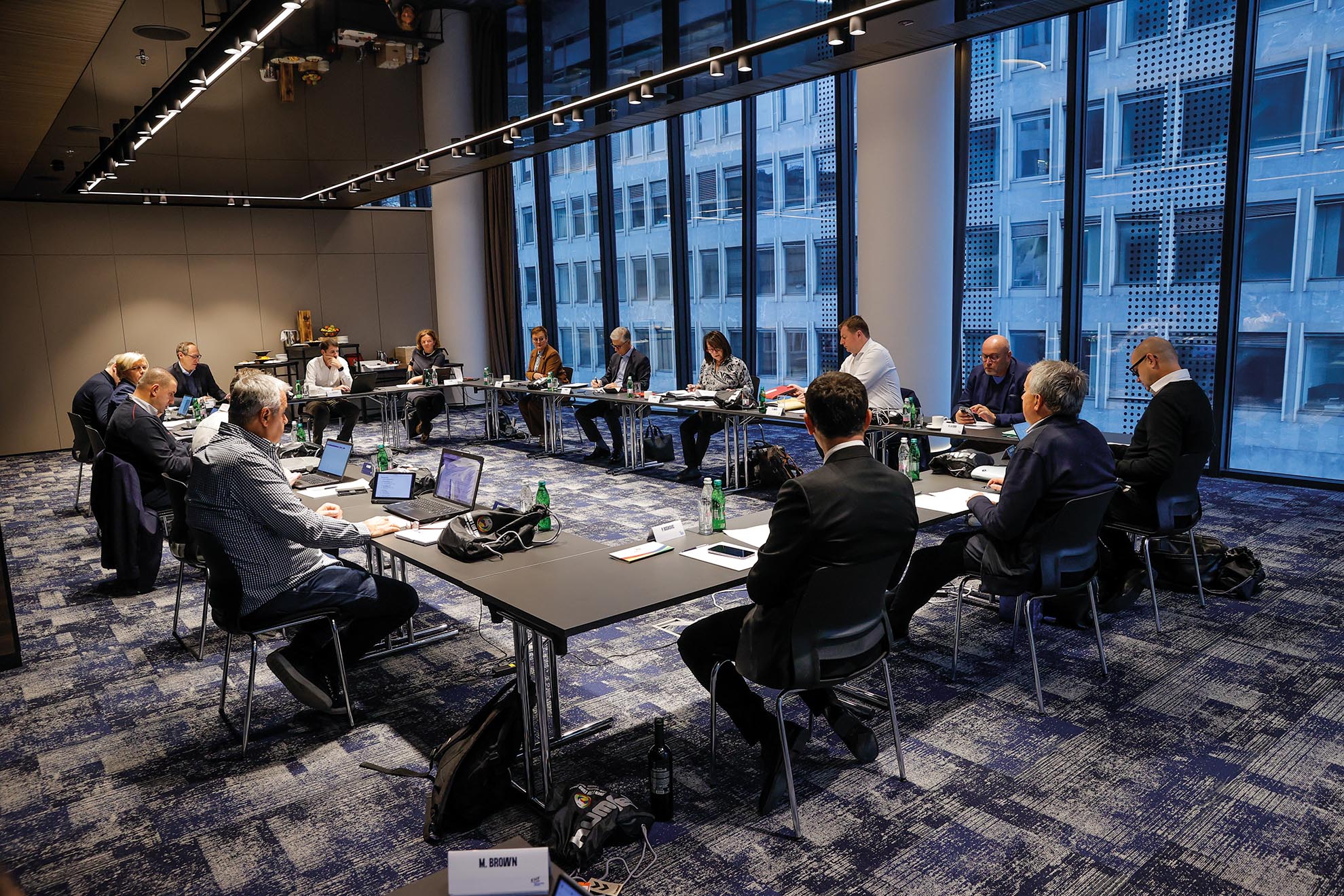The EHF opened its doors in Vienna 30 years ago, on 1 September 1992, with just two employees – then-Secretary General Michael Wiederer, and his Danish-Austrian assistant, Pia Pedersen.
The EHF was founded 10 months earlier at its initial congress in Berlin, and the first committee – headed by inaugural EHF President Staffan Holmqvist, from Sweden and administratively managed by treasurer Karl Güntzel from Switzerland – got straight on with finding a suitable seat for the headquarters of the organisation. In June 1992, the first Extraordinary Congress chose Vienna, as opposed to the two other suggestions of Berlin and Copenhagen.
Although Wiederer and Pedersen moved into their rented working space in September 1992, they did not initially spend much time there.
“There was no time to get used to the new office, as I went straight on to Miskolc in Hungary, where the first European Women’s Youth championship started on our first day, 1 September 1992,” said Wiederer.
Norway made history by becoming the first winners of an EHF competition. When that event finished, Wiederer travelled to Winterthur in Switzerland, where Portugal claimed the first European Men’s Youth championship.
Wiederer, who was appointed by the committee that subsequently became the EHF Executive Committee, and Pedersen had a huge task when they started. In 1993, the first European Cup competitions were about to begin. In 1994, the EHF had to organise the first Men’s and Women’s EHF EURO tournaments in Portugal and Germany, respectively.
The EHF signed its first major contract in 1992 with the Swiss marketing agency CWL, which is now known as Infront Sports and Media. Today, Infront is still a media and marketing partner of the EHF.
Seven national federation representatives formed the committee, and experts such as Jozef Ambrus (Slovakia), Jan Tuik (Netherlands), Manfred Prause (Germany), Jesus Guerrero (Spain) and Janusz Czerwinski (Poland) were part of the Technical Commission.
“There were many language barriers. We held our meeting in a mix of German and English, but ultimately we were successful,” said Wiederer about the beginning of the new venture.
Today, 13 members form the EHF Executive Committee, including the chairpersons of the Professional Handball Board, Women’s Handball Board and Nations Board. In November, the EHF Executive Committee had its 166th meeting since the founding of the EHF.
In March 1993, the EHF appointed Markus Glaser as its third employee. The Swiss man had been working for the IHF in the club competition department, and after one year in the USA, Glaser returned to Europe and started his work as competition manager. Now, 30 years on, Glaser is the EHF Chief Sports Officer and still the main person in charge of the EHF’s competitions.
When the EHF renamed the top-flight competitions from the IHF Champions Cup to the EHF Champions League ahead of the start of the 1993/94 season, a highly successful handball brand was born – and more personnel were needed.
The three initial offices became too small, and the EHF moved within the area to a “Japanese tea house”. More staff were recruited, such as Helmut Höritsch, who started out as Senior Manager for Education and Development before retiring as Senior Director of Sport & Game Services in March 2022; and Assistant Secretary General Alexander Toncourt, who passed away in 2012.
In 1996, the EHF Congress decided to build a new home for the EHF. In March 1998, the European Handball Federation’s nine employees moved to Hoffingergasse 18 in Vienna.
In 2005, EHF Marketing (EHFM) as the EHF’s daughter company and marketing arm, was founded, and nowadays more than 80 staff work for the EHF and EHFM.
Despite several extensions, the building in Hoffingergasse became far too small again. In 2021, EHFM moved to a new office building nearby – but there are already plans for a new European handball office in Vienna. “I hope we can move there in 2024,” said Wiederer.
Wiederer himself is still very much part of the EHF. After 24 years as Secretary General, he became EHF President at the 25th anniversary EHF Congress at Lake Wolfgang, Austria in 2016, and re-elected in 2021. In 2016, fellow Austrian Martin Hausleitner became only the second EHF Secretary General. Interestingly, Wiederer held the same position as Hausleitner – Secretary General of the Austrian Handball Federation – before he took over at the EHF in 1992 and opened the office doors on 1 September 1992 to start a story of success.

